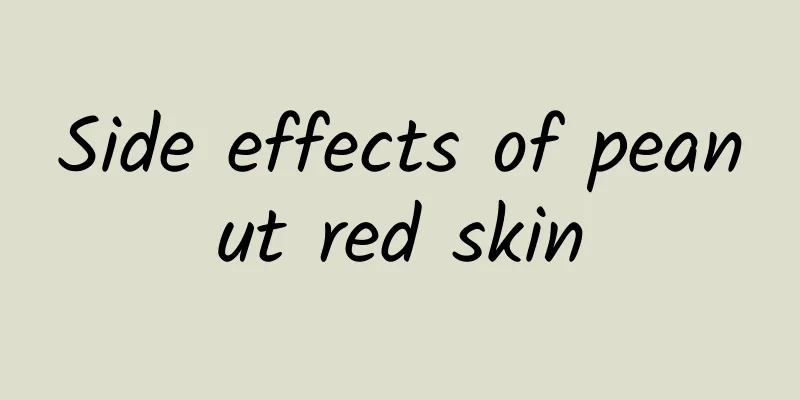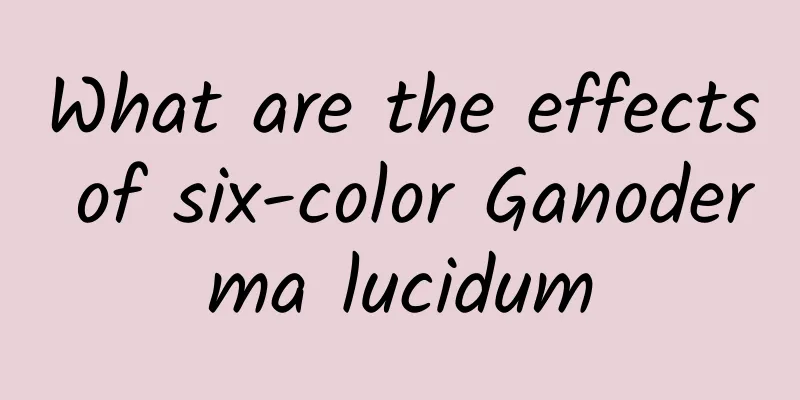The efficacy and function of wooden hoof

|
In daily life, people are not only very familiar with various foods, but also come into contact with a lot of medicines in daily life. Among them, wood hoof is a relatively common Chinese medicinal material. Given that there are still many people who don’t know much about wood hoof, let’s take a detailed look at it below. 【Other name】 Birch mushroom [Source] Medicinal material source: The fruiting body of the Polyporaceae fungus Facies polypore. 【Original morphology】 The fruiting body is perennial. Wood, hemispherical to horseshoe-shaped, or bell-shaped, (5-20) cm × (7-40) cm, about 3-20 cm thick. Sessile, lateral. The cap is smooth, hairless, with a hard cortex, mouse-gray, gray-brown to gray-black in color, dark brown in cross section, shiny, with obvious concentric ring ridges. Lid margin obtuse, yellowish brown. The flesh is dark yellow to rusty, reddish brown, stratified, corky, 0.5-3.5cm thick, and dull. The tubes are multi-layered with distinct layers, each layer is 0.5-2.5cm thick, the tube walls are thicker and gray-brown; the tube openings are round and relatively small, with 3-4 openings per 1mm. The mouth of the tube is gray to cinnamon and concave. The spores are oblong to prismatic, smooth, colorless, (10-18) μm × (5-6) μm. [Habitat distribution] Ecological environment: Grown on polluted standing trees and rotten wood of birch, maple, oak and poplar. 【Properties】 Characteristic identification: The fruiting body is sessile. The cap is horseshoe-shaped, with a long diameter of 3-40cm, a short diameter of 2-27cm, and a thickness of 2-18cm. The surface has a thick horny skin, which is gray, light brown or black, smooth, and has obvious concentric ring ridges. The tube mouth surface is light brown or gray, the tube mouth is round, and there are 3-4 of them every 1mm. Multiple layers of bacterial tubes can be seen in the longitudinal section, with each layer 5-25 mm thick. Corky. Slight odor, light taste. 【Chemical composition】 Contains 7,22-ergosta-7,22-dien-3-one, coenzyme Q9, acetyloleanolic acid, ergosterol, 5α,8α-epidioxyergosta-6,22-dien-3β-ol, betulin, 4,6,8(14),22-tetraene-3-one, 5,6-dimethoxyphthalide, and 6-carbomethoxyphthalide. [Pharmacological action] Muti can significantly improve the tolerance of experimental mice to decompression and hypoxia, prolong their survival time, and has anti-fatigue and anti-hyperthermia effects. It can also affect the flow rate and flow state of the mesenteric microcirculation of the hypoxic body, and improve the microcirculation. 【Nature and flavor】 Slightly bitter; neutral 【Functions and indications】Dissipating accumulation; removing blood stasis; anti-cancer. Staple food accumulation; esophageal cancer; gastric cancer; uterine cancer [Usage and Dosage] For oral use: decoction, 12-15g. 【Excerpt】 Chinese Materia Medica In the above article, we analyzed the wood hoof and knew that the functions and effects of the wood hoof are very wide-ranging. As long as we know more about the medicinal properties of traditional Chinese medicine, we will not panic when we encounter diseases. |
<<: The efficacy and function of wooden steamed buns
>>: The efficacy and function of kapok root
Recommend
Side effects of glucocorticoids
Glucocorticoids are not unfamiliar to everyone. P...
What are the differences between Astragalus and Astragalus?
Speaking of Astragalus membranaceus and Astragalu...
What are the treatment methods of nourishing blood deficiency with traditional Chinese medicine?
When blood is deficient, the yin blood in the bod...
Houttuynia cordata leaves
Houttuynia cordata root and leaf, also known as H...
Now that Nezha 2 is a big hit, you want to get close to groundhogs? Beware of the risk of plague!
Recently, the movie "Nezha: The Devil Boy Co...
Licorice root powder benefits and effects
Licorice is a widely used medicine in traditional...
The side effects of Pseudostellaria serrata are too great
The dried tuber of Pseudostellaria heterophylla i...
The efficacy and function of seven-lixiang
Modern medical research believes that Osmanthus f...
What is the value of snake venom?
Most people will be a little scared when they hea...
Do you have the same stutter as Shen Gongbao? The doctor teaches you how to speak smoothly from "stuttering"
The domestic animated film "Nezha: The Devil...
The efficacy and function of bitter pueraria root
Pueraria lobata is a very common Chinese medicine...
Foodies are rushing in! "Where can I find apple-flavored mushrooms? I'll help you taste them and see if they're delicious."
Recently, a "white mushroom" grew on an...
If a thyroid nodule grows, will it definitely develop into cancer? Many people’s answers are wrong
The thyroid gland is the largest endocrine gland ...
Seriously, stop using plastic bottles!
Many elders have this habit: no matter whether it...
The temperature is too high, do you need to rely on air conditioning to "keep alive"? Be careful of these "air conditioning diseases"!
In summer, the temperature remains high. Many peo...









